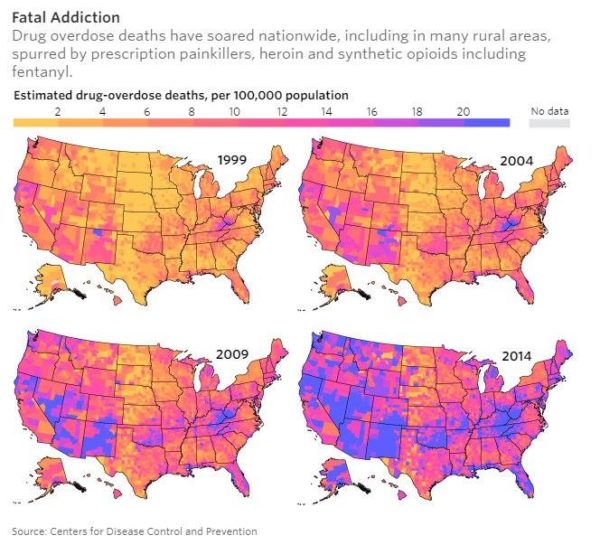Yesterday, May 15, 2018, the United States Department of Justice took a major step in combatting the opioid epidemic by joining, and unsealing, a consolidated whistleblower False Claims Act case against Defendant Insys Therapeutics, Inc. (Insys) alleging that Insys conducted a widespread campaign of bribery, kickbacks, off-label marketing and deception to push the deadly fentanyl-based opioid Subsys. Under the False Claims Act, private individuals can file a lawsuit alleging the federal government has been defrauded, and the Department of Justice can elect to join and prosecute the lawsuit — as occurred in this case. If the Department of Justice recovers money based on the whistleblowers’ allegations, the whistleblowers are entitled to between 15-25 percent of the governments’ recovery.
Subsys—a Deadly Drug Promoted “Off-Label” and Through Kickbacks
Four separate whistleblower (or “qui tam”) cases were filed against Insys alleging egregious fraud including operating a “speaker program” that only served as a pretext to pay physicians hundreds of thousands of dollars to prescribe Subsys. As well, Insys often hired physicians’ family, friends and girlfriends to encourage Subsys prescribing, took physicians on all-expense paid trips to strip clubs and paid for lavish meals, all to get physicians to write prescriptions for a deadly opioid.
Subsys, the drug that Insys was bribing physicians to prescribe in massive quantities, is one of the most dangerous and addictive opioid drugs in the world. Therefore, Subsys is only approved by the FDA for the purpose of treating adult cancer patients who are already taking opioids to treat their cancer pain, but have found the other opioids to be insufficient to treat instances of breakthrough pain. However, because of Insys’ disregard for patient safety, taxpayer’s dollars and sole focus of profit, Insys also widely marketed Subsys outside of the FDA approved use — promoting Subsys for an array of pain management symptoms. This conduct constitutes “off-label marketing” and is separately actionable under the False Claims Act. Because of the millions of dollars in bribes paid to physicians, and encouragement to prescribe Subsys for off-label uses, many patients who did not have cancer at all were soon being prescribed Subsys.
Physicians who prescribed Subsys include Drs. John Patrick Couch and Xiulu Ruan who operated a physician practice in Mobile, Alabama called Physician’s Pain Specialists of Alabama. Between 2012 and 2015, Insys paid Dr. Ruan at least $170,000 in “speaking fees,” and it paid Dr. Couch at least $100,000 in “speaking fees.” In exchange for these bribes, Drs Couch and Ruan prescribed extraordinary amounts of Subsys. The Medicare and TRICARE government health care programs, alone, paid over $9.2 million for Subsys prescribed by these two physicians. In February 2017, following a seven-week federal criminal trial, a jury in Alabama found Drs. Couch and Ruan guilty of several federal criminal offenses, including (1) illegally prescribing fentanyl and other opioid drugs outside the usual course of professional practice and not for a legitimate medical purpose, and (2) accepting kickbacks from Insys. In May 2017, they were sentenced to 20 and 21 years in prison, respectively.
Deadly Prior Authorization Fraud
Insys routinely lied to insurers including Medicare Part D plans to bypass insurers’ strict prior authorization policies. Because Subsys is one of the most dangerous and powerful drugs in the world, most insurers require a patient to have a prior authorization, certifying the patient meets strict conditions, before the insurance company will pay for Subsys. To bypass this limitation, designed for patient safety, Insys established an internal unit dedicated to facilitating the process of obtaining prior authorization of Subsys prescriptions. However, this unit routinely falsely represented that patients met the requirements to receive a prior authorization when in fact they did not. For instance, Insys employees falsely represented that the patients had cancer when they did not and that the Insys employee was actually an employee of the patients’ provider’s office.
In one instance demonstrating the danger of prior authorization fraud, a Insys employee named “Gina” called to fraudulently obtain a prior authorization for a Medicare beneficiary named Sarah Fuller (Mrs. Fuller’s identity has been publicly disclosed in U.S. Senate hearings). Gina falsely represented that she was employed Mrs. Fuller’s physician’s office and that Mrs. Fuller had cancer — neither were true. Based on these false representations, Ms. Fuller’s Subsys prescription was approved and between Jan. 8, 2015 and March 21, 2016, the Medicare Program paid more than $211,000 for Subsys for Ms. Fuller. Ms. Fuller died of a drug overdose in March 2016.
Many of Insys’ employees and prescribing physicians have been charged and convicted of federal crimes due to their involvement in this egregious fraud, including the John N. Kapoor, the founder and owner of Insys and numerous other executives and sales managers, all charged in a sweeping RICO indictment. As well, Elizabeth Gurrieri, who headed Insys prior authorization fraud, pleaded guilty to one count of conspiracy to commit wire fraud. In this tragic situation, people have died, been caught in the downward spiral of addiction and suffered untold pain, all for the greed of a morally bankrupt company. Therefore, Frohsin Barger & Walthall applauds the brave whistleblowers and their attorneys who have come forward in this case and the Department of Justice for joining this case in pursuing apparently the only thing Insys cares about — money.
To learn more about the False Claims Act and how it can be used to fight the opioid crises and pharmaceutical fraud, click here.






Talk with an Expert
Frohsin Barger & Walthall
Call 205.933.4006 or
Send us a Message